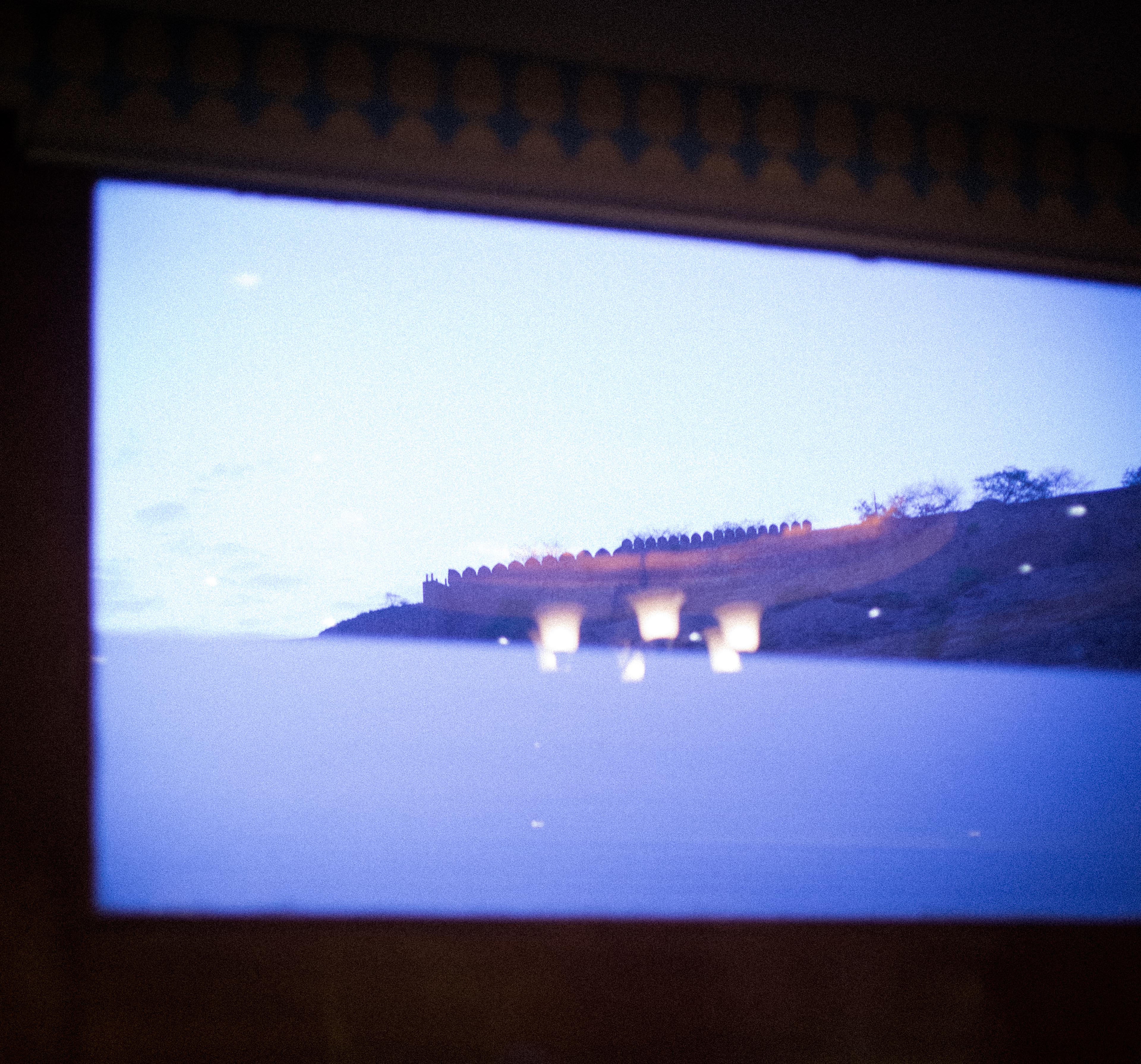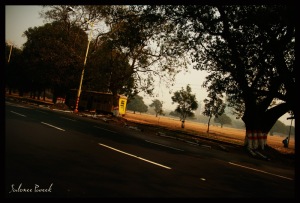Sometimes, I feel I should capture my thoughts. Rather, be able to capture my thoughts as they form. By the time I can find a pen or figure out a tool to type in, they vanish like mist.
I’ve been feeling, not thinking, about disconnect. Like, even when I am having a conversation with someone, they say something to me and I feel something about it and respond. Their own feelings might be entirely different. And therefore, their own responses will carry a different perspective, a different tone too, perhaps, than mine would. Journeys too, sometimes evoke envy, sometimes just joy, and sometimes, a certain wistfulness about it.
In a span of a few seconds, I am hit by a curious mix of memory, feeling, pervading nostalgia, and nausea, discomfort of sitting hunched on the top berth of a 2nd class sleeper on a hot afternoon in May when the train was hurtling through landscapes I could not see, because all the shutters were down, the awe of seeing a sunrise from the train window, one day over a vast expanse of fields and another over a never ending row of trees, sometimes, the train would curve and I’d wish the window bars were further out so I could see and be fascinated. Because a friend is travelling by train. I’m feeling all of this and reliving snippets from memory. Of all my teenage train crushes, the first man I fell for, and kept staring at, and who kept staring back at me, for a whole day, and inspired several of my sappy first attempts at poetry. How the idea of love makes a fool out of me! Every damn time. And then Euphoria came out with Maeri. Palash Sen in a train, and I found the female lead so annoying! Kaun train ke darwazay ke paas khade ho kar, cute banday se eye contact bana kar brush karta hai yaar! How utterly gross!
And then all the delays, sometimes 4-5 hours, sometimes more, the enormousness of Howrah. The fascination of seeing so many yellow taxis, quintessential to Calcutta. There were no taxis in Ahmedabad. Reaching Hind Motor, the smells of that gully near the station, the smokiness muffling the gutter stench and carrying faint aromas of samoas frying, chai boiling, and slow moving. The journey long over, but the body still feeling the slight rocking motion of still being in the train.
I learnt to make a plait, braiding my mother’s long hair on a train. I would dread the time she would remember to ask me to recite the multiplication tables and I would hope that she forgets. I would wait for the chanajor, kheera, guava wala, they’d cut the fruit and add a generous amount of salt and red chili powder to it. Those were the most delicious cucumbers I ate. The chanajor with a mix of finely cut tomatoes, onions, coriander, chaat masala, and a dash of nimbu. It would burn my tongue but god, was it delicious! Mummy would let me have a little bit, dusting the spices off. She was a spice-slaying goddess for me.
Someone in the next compartment would being a round of Antakshari, and I’d be dying to join in but wouldn’t. I’d peep in sometimes, I’d look from the cage-like grill on the top berth sometimes. I would hope and wish we were a large group travelling because that would be infinitely more fun. And sometimes, well, all the time, there would be unwelcome passangers travelling without a ticket, sometimes with a child whom I’d hate for having to fight for the window seat. I would wonder which station they’d get off on. I’d hate being squeezed into a tiny space because 5 were sitting on the berth meant for 3. Afternoon siestas on the middle berth, the very act of setting up that berth – a wonder inspiring ritual. Getting the full seat for myself – a rare blessing. Somehow, the berth always had enough space for both mummy and me. The first time my tooth came off, was in a train. I learnt the concept of milk teeth and permanent teeth, and the idea of temporariness and permanence, in the Howrah Express.
Come evening, the big, rectangular, aluminium tiffin would open and dal-ki-poodi would be brought out, some ker-saangri to go with it, disposable plates, water from the thermos, and the wait for Kharagpur with its longest platform, confirming that we’re indeed close to nani’s house. Now there will be no more delays.









